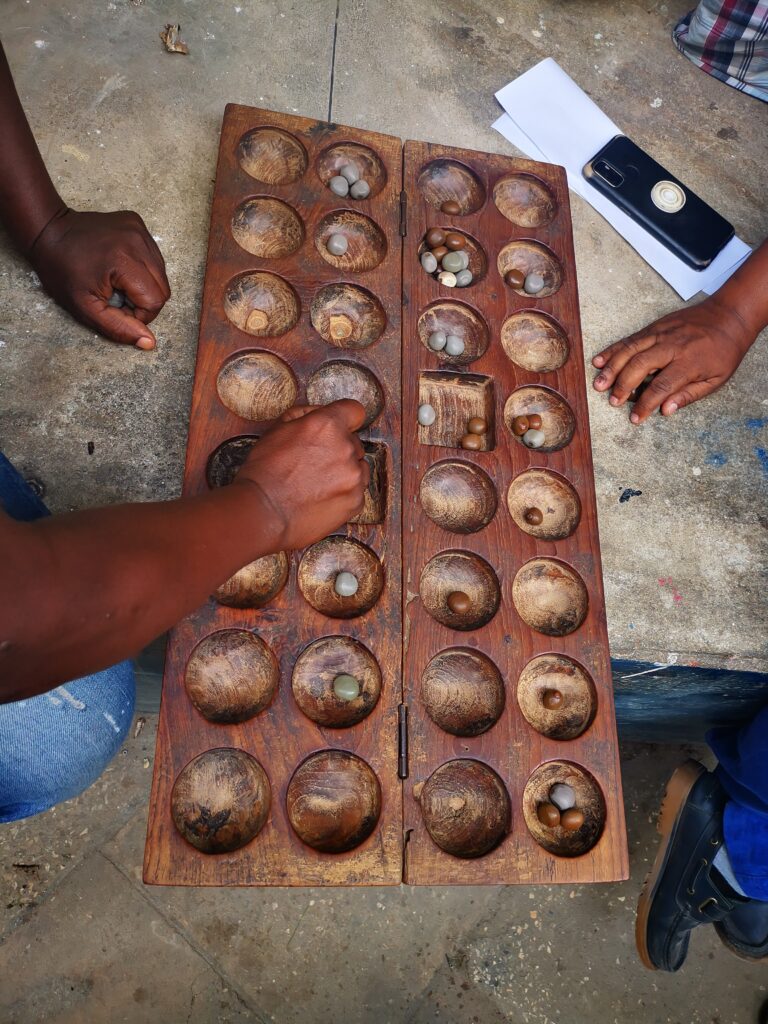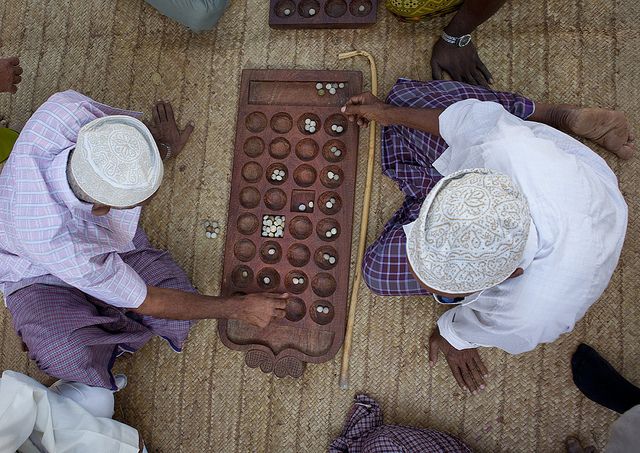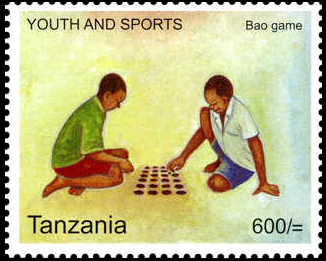Bao - A Game of Seeds, Strategy & Swahili Soul
On the coral-stone streets of Zanzibar, just as the call to prayer echoes through the alleys and the aroma of spiced coffee drifts from tiny cafés, there is a quiet rhythm you’ll often hear – the soft clinking of seeds in a wooden board, laughter, silence, then sudden applause. This is Bao, the beloved board game of the Swahili coast – more than a pastime, it’s a way of life.

A Living Tradition by the Sea
The name ‘Bao’ simply means ‘board’ in Swahili, but the game itself is anything but simple. For generations, Bao has been played from the bustling markets of Stone Town to the shaded courtyards of Tanga and Dar es Salaam. Its roots run deep into East Africa’s Swahili culture – blending African strategy with Arabic rhythm and Indian patience.
In Zanzibar, it’s common to find elders sitting cross-legged on carved benches, their fingers dancing across hand-carved wooden boards, cups of kahawa tungu (strong black coffee spiced with cardamom) steaming at their side. Children gather to watch, learning not just the rules, but the rituals – the respectful silence, the raised eyebrow before a clever move, the joy of learning from defeat.
What Makes Bao Special
Bao belongs to the ancient Mancala family of games – played across Africa and parts of Asia for thousands of years. But Bao is the crown jewel: rich in tactics, layered in strategy, and full of cultural nuance. It’s a game that challenges your mind, sharpens your focus, and connects you to generations past.
There are two main ways to play:
- Bao la Kiswahili – the traditional Zanzibari style, elegant and intricate.
- Bao la Kiswahili Rahisi – a simplified version for new players or casual play.
The Board and the Seeds
A Bao board has four rows of eight pits, hand-carved from rich African hardwoods. The pits are filled with seeds, traditionally tamarind or baobab, sometimes even cowrie shells or smooth pebbles, each worn smooth by years of play.
The setup is as intentional as a coffee ceremony – carefully placing the seeds in a sacred rhythm. The two inner rows are the battleground; the outer rows, your reserve. Each move feels like poetry – not just a step toward victory, but a reflection of patience and planning.

Coffee, Conversation, and Competition
In Zanzibar, playing Bao is never rushed. It’s accompanied by coffee and conversation – spicy, dark brews served in tiny porcelain cups. The game unfolds slowly, each turn savored like the final sip of sweet kahawa. Friends tease one another in Swahili, trading clever proverbs between moves.
Winning isn’t everything. The spirit of Bao lies in the exchange – of ideas, glances, smiles, and tradition. Young and old sit side by side. A master might pause to teach a curious child the value of a pit, the danger of an early capture, or the strength of letting go.
A National Treasure
Bao is so deeply rooted in Tanzanian culture that it has even appeared on official postage stamps – a tiny but powerful tribute to its national significance. It’s a game passed from grandparent to grandchild, from friend to traveler, across beaches, balconies, and coffee shops.
And while the rest of the world scrolls, clicks, and swipes, the people of Zanzibar continue to sow seeds of strategy, one smooth tamarind at a time.

In the Heart of Zanzibar, Bao Lives On
Bao isn’t just a game – it’s a language, a ceremony, a bond. It teaches patience, wisdom, and the beauty of slow, thoughtful living. Whether you’re a guest watching under a mango tree or a player learning your first move, you’ll feel it: the quiet magic of a centuries-old tradition still alive in every pit and pebble.
So next time you find yourself in a Swahili café with time to spare and coffee in hand, listen for the gentle rhythm of seeds – and you’ll know: Bao is being played, and you are welcome.
